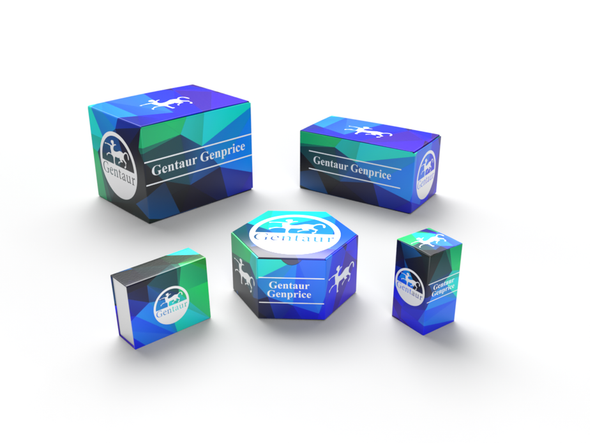740
Rat Prostaglandin H2 (PGH2) ELISA Kit | AE27794RA
- SKU:
- 740-AE27794RA
- Availability:
- Usually ships in 5 working days
Description
Rat Prostaglandin H2 (PGH2) ELISA Kit | AE27794RA | Gentaur UK, US & Europe Distribution
Species Reactivity: Rat (Rattus norvegicus)
Abbreviation: PGH2
Alternative Name: N/A
Application: ELISA
Range: 2.47-200 pg/mL
Sensitivity: 0.97 pg/mL
Intra-Assay: ≤6.3%
Inter-Assay: ≤8.6%
Recovery: 0, 9
Sample Type: Serum, Plasma, Other biological fluids
Detection Method: Sandwich
Analysis Method : Quantitive
Test Principale: This assay employs a two-site sandwich ELISA to quantitate PGH2 in samples. An antibody specific for PGH2 has been pre-coated onto a microplate. Standards and samples are pipetted into the wells and anyPGH2 present is bound by the immobilized antibody. After removing any unbound substances, a biotin-conjugated antibody specific for PGH2 is added to the wells. After washing, Streptavidin conjugated Horseradish Peroxidase (HRP) is added to the wells. Following a wash to remove any unbound avidin-enzyme reagent, a substrate solution is added to the wells and color develops in proportion to the amount of PGH2 bound in the initial step. The color development is stopped and the intensity of the color is measured.
Product Overview: Prostaglandin H2 is a type of Prostaglandin which is derived from arachidonic acid and is a precursor for many other biologically. Prostaglandins are members of a group of lipid compounds that are derived enzymatically from essential fatty acids (EFAs) and have important functions in the animal body. Every prostaglandin contains 20 carbon atoms, including a 5-carbon ring. Prostaglandin name derives from the prostate gland. When prostaglandins were first isolated from seminal fluid in 1935 by the Swedish physiologist Ulf von Euler and independently by M.W. Goldblatt, it was believed to be part of the prostatic secretions. Later it was shown that many other tissues secrete prostaglandins for various functions. In 1971, it was determined that aspirin-like drugs could inhibit the synthesis of prostaglandins.
Stability: The stability of ELISA kit is determined by the loss rate of activity. The loss rate of this kit is less than 5% within the expiration date under appropriate storage condition. The loss rate was determined by accelerated thermal degradation test. Keep the kit at 37°C for 4 and 7 days, and compare O.D.values of the kit kept at 37°C with that of at recommended temperature. (referring from China Biological Products Standard, which was calculated by the Arrhenius equation. For ELISA kit, 4 days storage at 37°C can be considered as 6 months at 2 - 8°C, which means 7 days at 37°C equaling 12 months at 2 - 8°C) .






